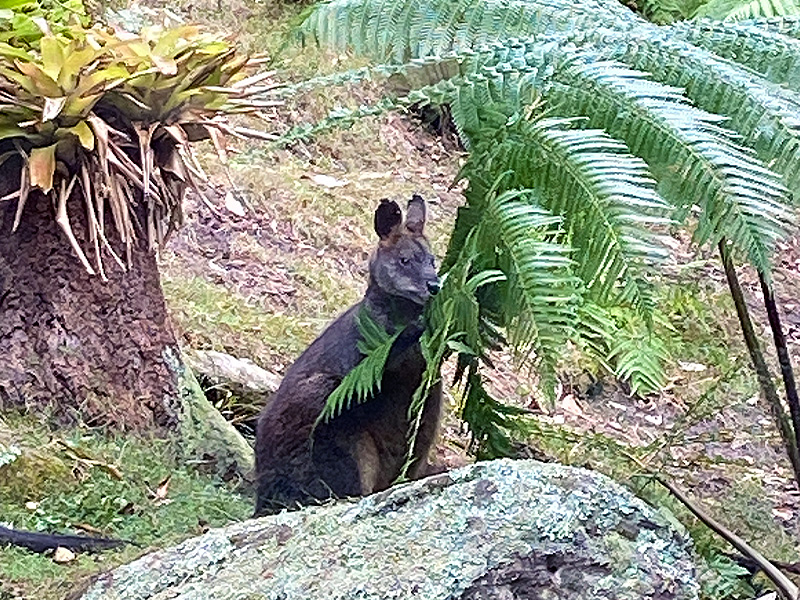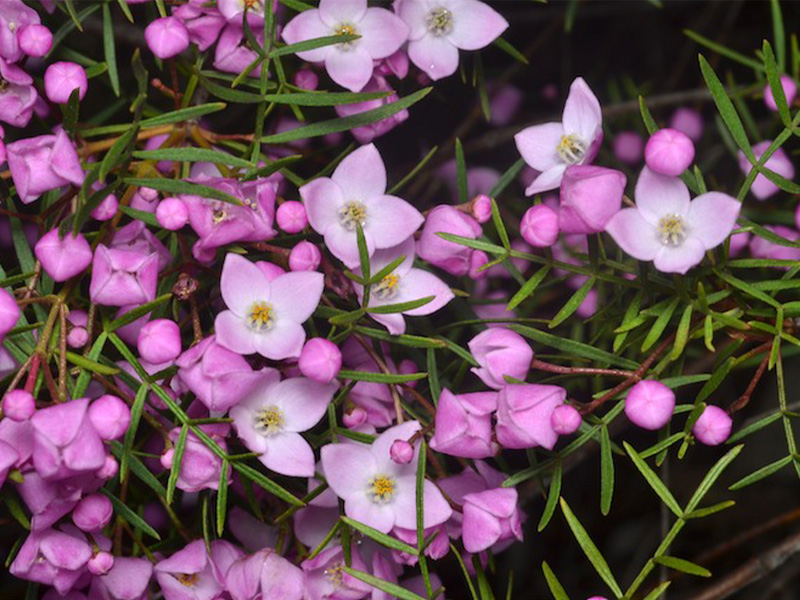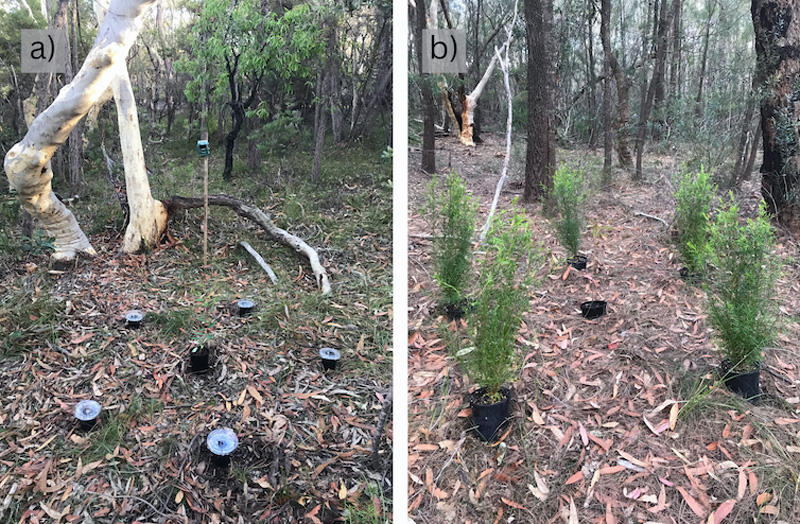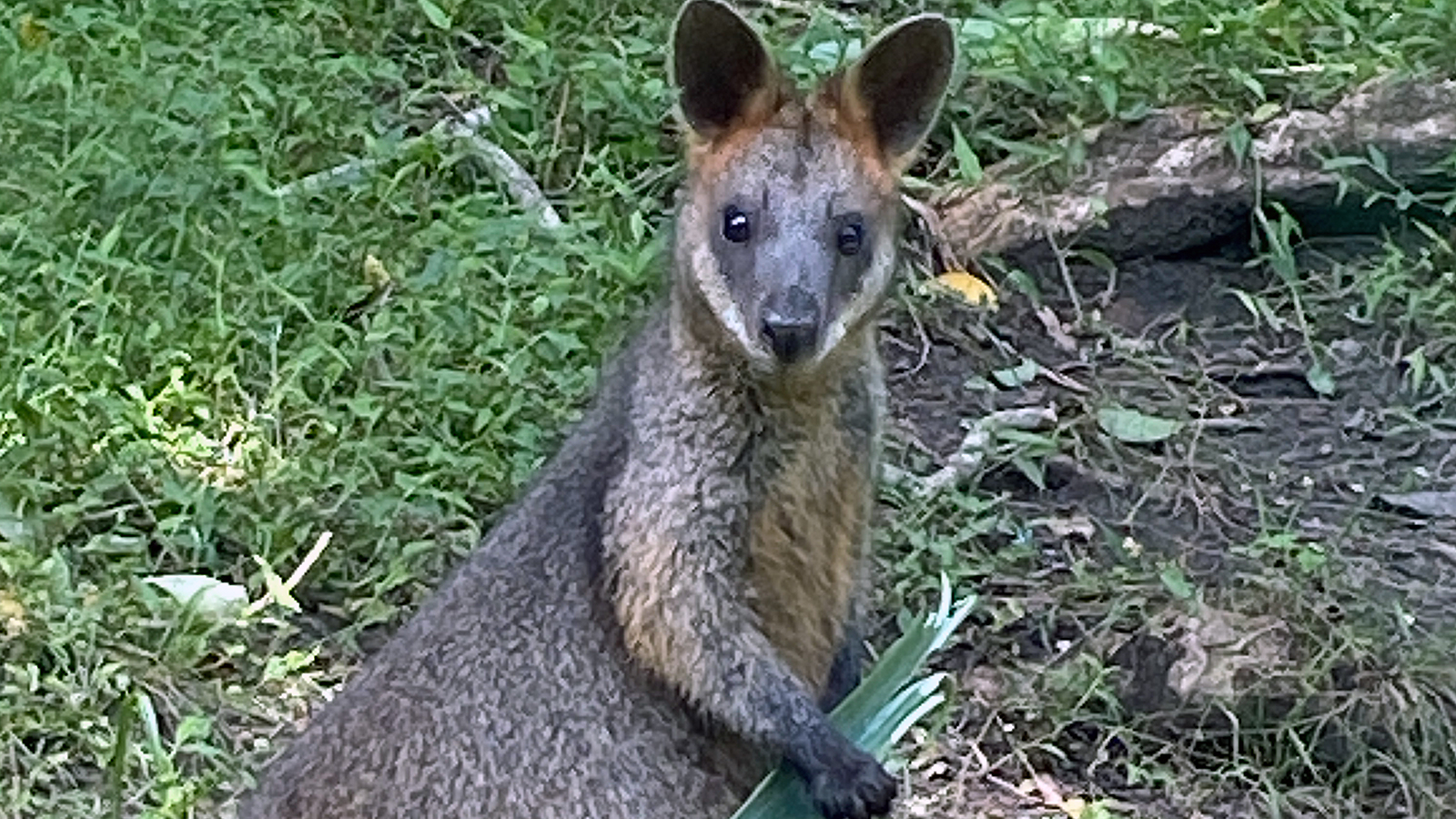
Swamp wallaby
If you’ve tried everything and failed to stop wallabies from eating your garden, a recent study published in Nature Ecology and Evolution may have the answer. The study shows that the ubiquitious swamp wallaby is attracted, not just by the sight of succulent young growth but by leaf odour and that those odours play a critical role in food finding.
The study went on to investigate whether there were odours that the swamp wallaby found offensive or distasteful and if it might be possible to keep them away from vulnerable plants and seedlings by artificially creating and using those smells that wallabies avoid.
One of the plants that wallabies avoid is the Boronia Pinnata – the pretty pink flower that grows in abundance in Kuringai National Park.

Boronia Pinnata
The scientists who carried out the study isolated the key scent compounds of the boronia and created a mixture that mimicked what a wallaby would recognise as, in their view, the unappetising and offensive Boronia Pinnata. They then placed these smells in the bush next to eucalypt seedlings they were trying to protect.

“Smell boxes” and Boronia Pinnata plants around seedlings
They also compared the efficacy of the compound with the real thing and planted out areas containing eucalypt seedlings with real Boronia Pinnata plants and there was a third control group of eucalypt seedlings that had no protection. Then they set up the cameras and waited.
After 40 days the results were impressive. The artificially scented areas were 20 times less likely to be eaten that those in the areas planted out with the real thing or no boronia plantings at all.
Apart from the fact that this may be the discovery that protects your garden from marauding wallabies, it is also a step towards protecting vulnerable plants from herbivores in areas such as post bushfire recovery where revegetation is critical and agricultural areas where often the solution is killing the problem animal.
Just not sure where you buy it or if it also works on possums.
Article by Pru Colville adapted from The Conversation
